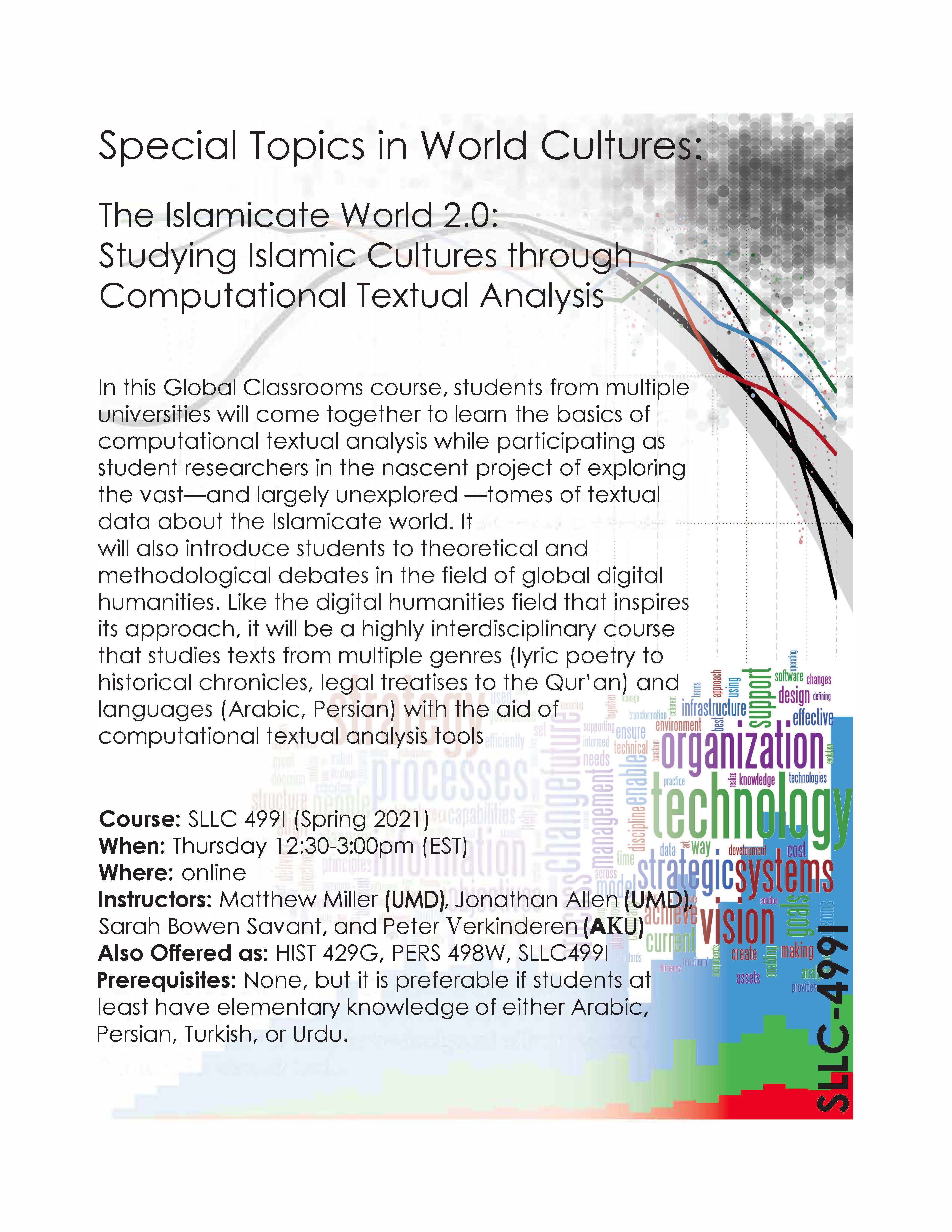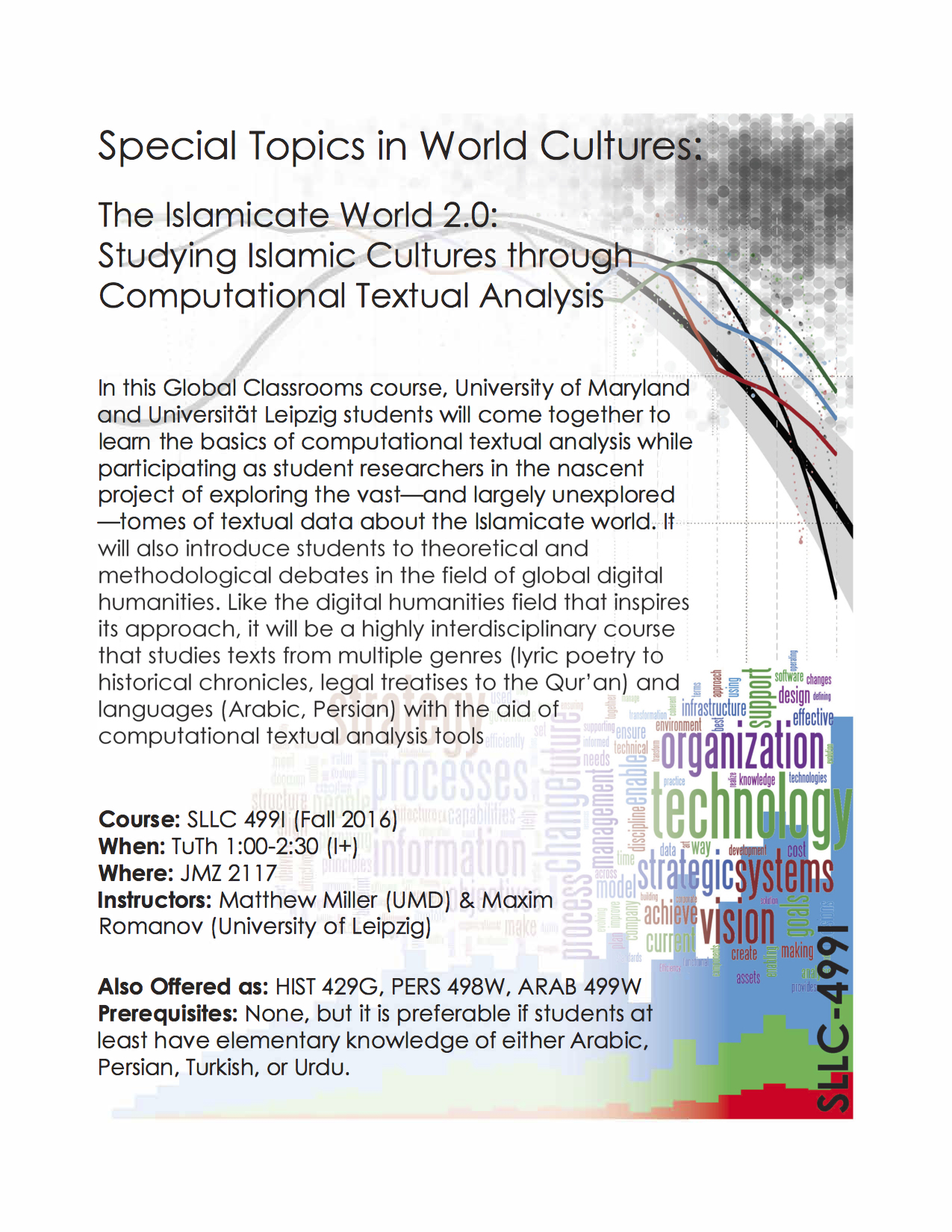2021 Iteration of the Course

The Islamicate World 2.0: Studying Islamic Cultures through Computational Textual Analysis is a Global Classrooms course that will be taught collaboratively by professors at the Roshan Institute for Persian Studies at the University of Maryland (College Park) and the Institute for the Study of Muslim Civilisations at the Aga Khan University (London). In this exciting, new project-based course, students from both institutions will come together to learn the basics of computational textual analysis while participating as student researchers in the nascent project of exploring the vast and largely unexplored tomes of textual data about the Islamicate world. It will also introduce students to theoretical and methodological debates in the field of global digital humanities. Like the digital humanities field that inspires its approach, it will be a highly interdisciplinary course that studies texts from multiple genres (lyric poetry to historical chronicles, legal treatises to the Quran) and languages (Arabic, Persian) with the aid of computational textual analysis tools. There are no language prerequisites, but it is preferable if students at least have elementary knowledge of either Arabic, Persian, Turkish, or Urdu.
The new course website is underdevelopment, but will soon be available here.
2016 Iteration of the Course

The Islamicate World 2.0: Studying Islamic Cultures through Computational Textual Analysis is a Global Classrooms course that will be offered for the first time in the fall of 2016 by Roshan Institute for Persian Studies at the University of Maryland (College Park) and Humboldt Chair of Digital Humanities at Universität Leipzig. In this exciting, new project-based course, students from both institutions will come together to learn the basics of computational textual analysis while participating as student researchers in the nascent project of exploring the vast and largely unexplored tomes of textual data about the Islamicate world. It will also introduce students to theoretical and methodological debates in the field of global digital humanities. Like the digital humanities field that inspires its approach, it will be a highly interdisciplinary course that studies texts from multiple genres (lyric poetry to historical chronicles, legal treatises to the Quran) and languages (Arabic, Persian) with the aid of computational textual analysis tools. There are no language prerequisites, but it is preferable if students at least have elementary knowledge of either Arabic, Persian, Turkish, or Urdu.
More information on the 2016 version of this course is available here.
